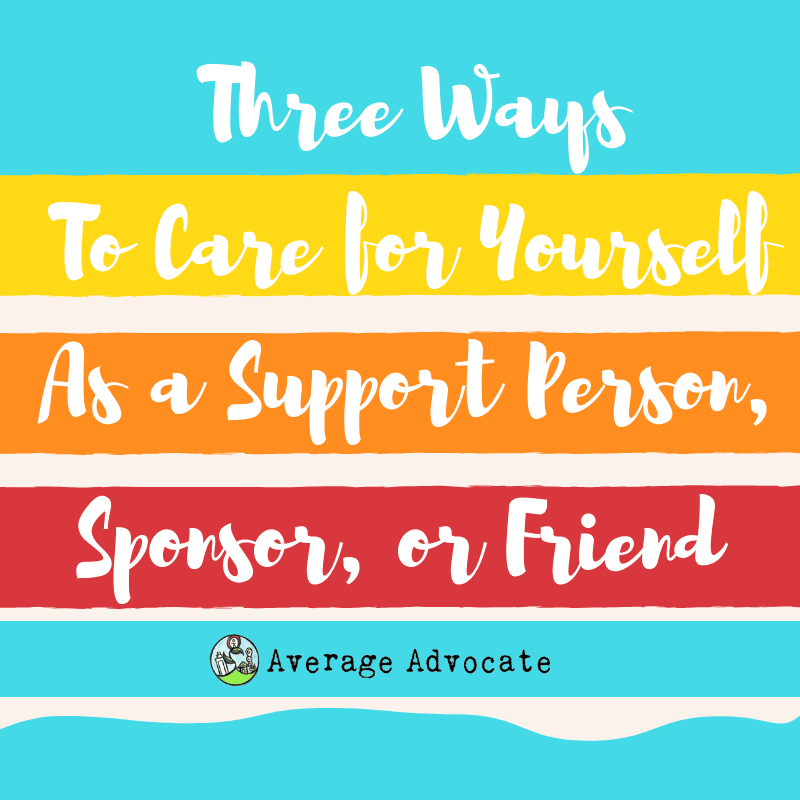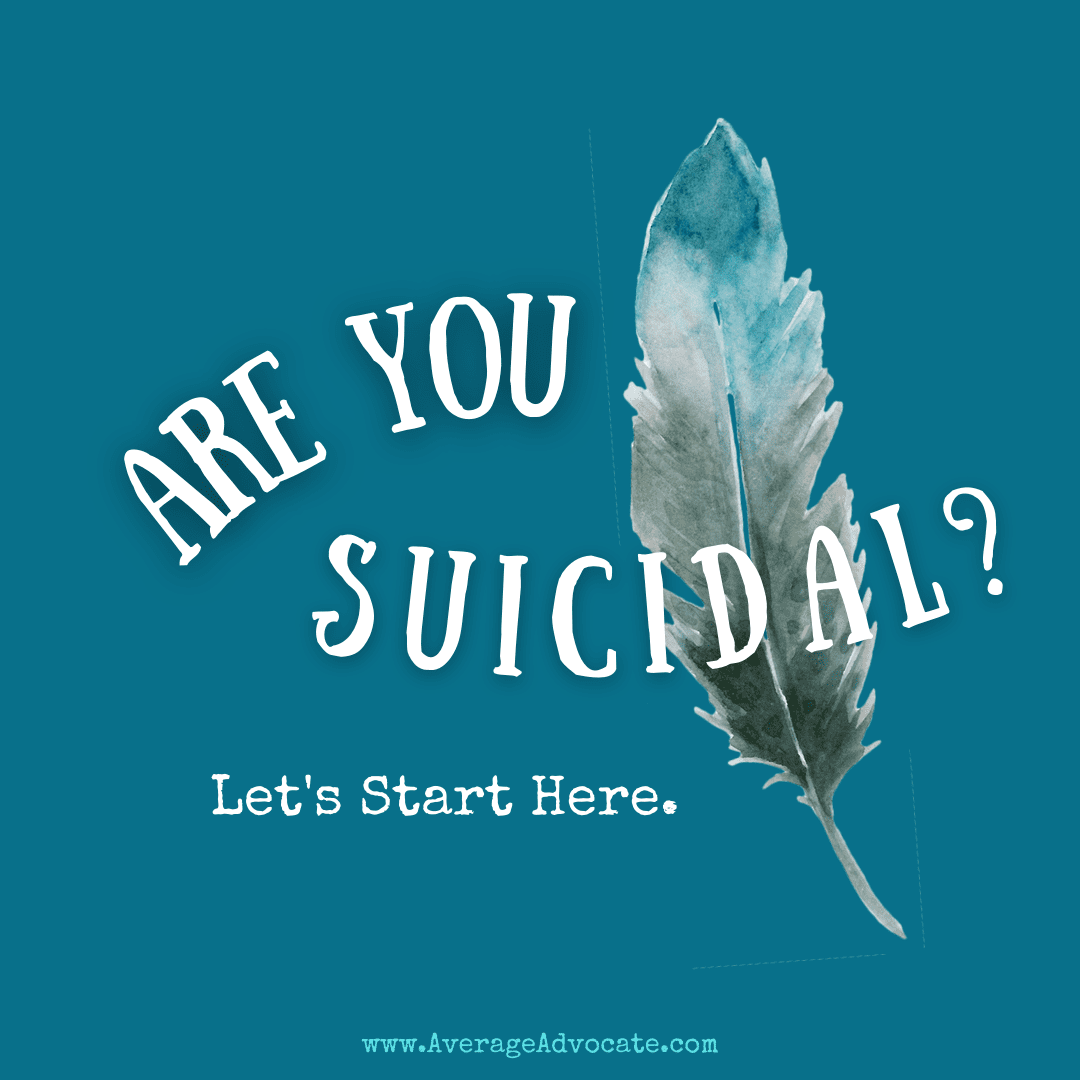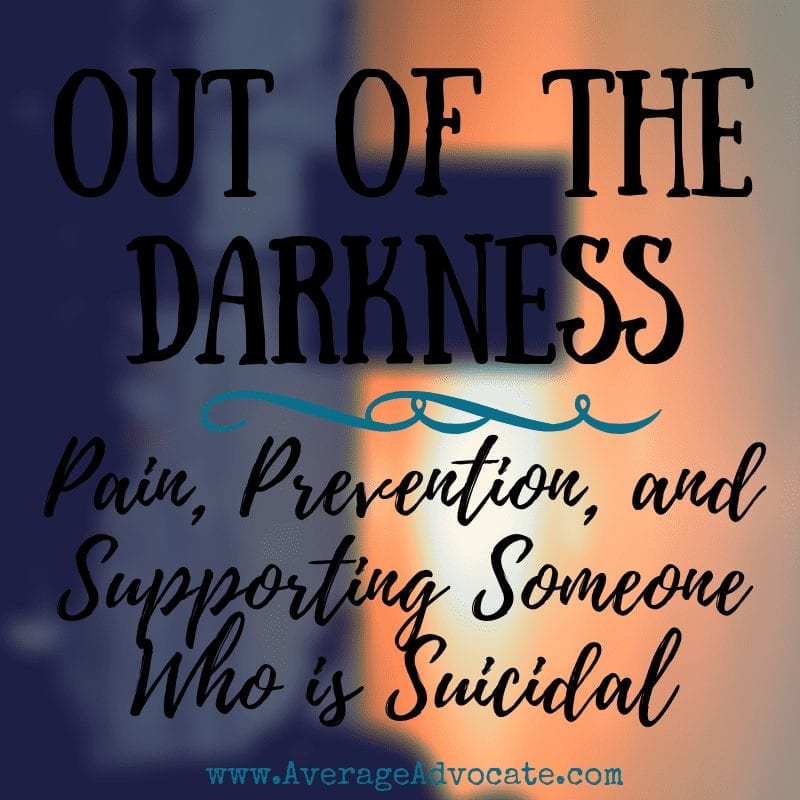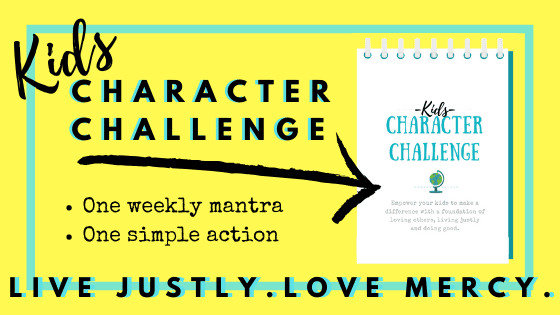If you are a support person, sponsor or friend to someone who needs continual help, it means you need help too! This week I posted Out of the Darkness: Pain, Suicide Prevention, and Supporting Someone Who is Suicidal. Maybe there is a person in your life that is suicidal, too, which is why you you clicked on this post. Or maybe there is a person you are supporting is going through a different difficult season, whether recovering from an addiction, eating disorder, was a victim of abuse, or struggles with other mental health issues.
GO HERE IF YOU ARE YOU SUICIDAL
Regardless of what they are going through, it is okay for you to care for yourself too if you are a support person. In fact, you’ll need to.
This is why I am sharing with you these three ways to care for yourself as a support person that help me.
Three Ways To Care For Yourself
1.) Admit There Is An End To You
First, is a type of surrender. You aren’t omnipresent. You will have to get off the phone to take care of yourself. When you love someone enough to show-up for them, creating boundaries can feel really scary. For example, it is an admission that you realize you can’t actually stop someone from killing themselves.
You are putting your heart out for someone, and your heart might be broken.
But you can’t be light for those in the darkness if you are drained. You have to maintain your own self-care of sleeping, eating, remaining joyful, being there for your family and other commitments. We might be able to challenge ourselves to love small, bigger, but we aren’t a well that goes on forever.
We can’t be light if we are drained.
2.) Find a Way To Process Your Own Struggle
Also, you will need to get what you feel and think out of you and process it. You will experience pain, confusion, and grief too, as you walk alongside someone who is struggling. Whether this is through friendships, counseling, a community, or art or exercize, find outlets to express yourself.
3.) Always Be Learning
How can you help someone if you don’t know what they are going through?
Thankfully, you can learn about what they are struggling with through countless ways, whether through books, blog posts, documentaries, podcasts, calling hotlines, support groups, asking for advice from others who’ve been there, or going to a specialist. Resources are endless.
But don’t just stay as you are. If you love this person, take the time to discover what it is like for them and what is going on with them. To be a good support person for someone who is struggling with any mental health issue, eating disorder, addiction, or abuse. Opening yourself up to learn is vital.
What Do I Do To Take Care of Myself as a Support Person?
In case it helps, this is personally how I handle being a support person, in implementing these three above things.
First and foremost, as a follower of Jesus, for me prayer is vital to connect myself with God. This fills me with life and love to overflow, and without it I am pretty much useless. And as I believe in a spiritual realm, prayer is my method of fighting in this arena. I get that this might sound crazy for those who don’t believe this, but I’ve been privy to too many miracles both in others and in my life to disregard it.
Also, I’ve developed a strong spiritual community around me–they are my personal lifeline. I process a lot of my feelings with this community. I ask them for feedback, for wisdom, or if they see I am being an idiot. I am not afraid to ask them for help, especially so I can prioritize time by myself and for my family.
Learning is a big thing for me. I usually have a pile of books at the library ready to pick up to skim through, and any time I am not sure what to say and what not to say, Google is there for me. Whenever I meet someone who’s story I can learn from, I ask them. Sometimes I go to joint counseling sessions with my mentee to learn. I am always begging God for wisdom, and so often I see him give me what can only be supernatural thoughts to get to the bottom of what needs to be addressed to help my friend see the light.
I speak truth to myself. It might seem silly, but I proclaim my own worth, speak my truth cards out about me, look at old encouraging things said to me, and even read Ephesians 1-3 in the Bible about myself to remind me of who I am, and that I can do this.
And in case I don’t mention it often enough, through Life Mapping, I weekly take time to reevaluate if what I am doing is working.
And, no surprise, I write through my feelings (you can read one of my poems here).
Want to learn more about being a support person?
Here is part of this series, on suicide, and the first post in this series, Our New Addition: When Social Justice Becomes Family











Trackbacks/Pingbacks